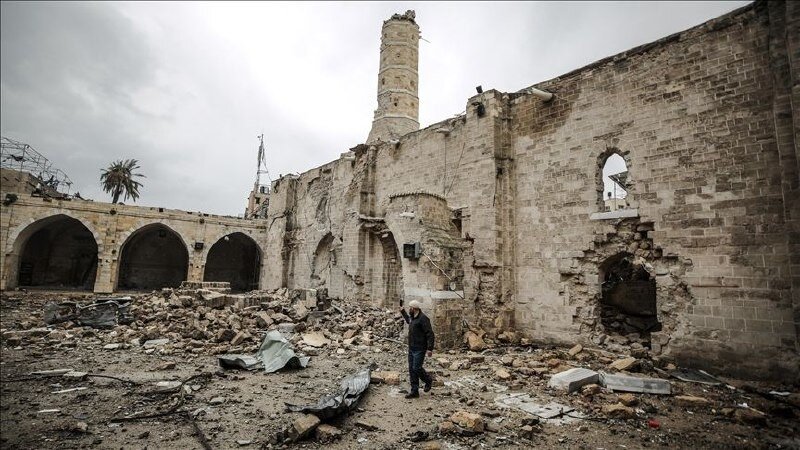Gaza’s cultural heritage under threat: experts warn of systematic erasure of Palestinian memory

TEHRAN – The Gaza Strip, a land steeped in millennia of history, is facing what experts describe as an unprecedented assault on its cultural heritage, with archaeologists warning that the destruction of ancient sites, museums, and archives risks erasing Palestinian historical memory entirely.
Professor Salah Hussein Al-Houdalieh, an archaeologist at Al-Quds University and Secretary General of ICOMOS-Palestine, has sounded the alarm over the devastating impact of Israel’s ongoing military campaign, which has now entered its 17th month.
“The Gaza Strip’s cultural heritage has endured occupation, looting, and neglect for decades, but what we are witnessing now is systematic obliteration,” Al-Houdalieh told.
“This is not just collateral damage—it is an ideologically driven assault on Palestinian identity.”
Gaza’s strategic location has made it a crossroads of civilizations for over 1.5 million years, hosting ancient Egyptians, Canaanites, Philistines, Byzantines, and Islamic dynasties. A 2019 UNESCO-backed survey documented 354 heritage sites, including the Great Omari Mosque, Anthedon Harbour, and Tell al-Sakan—one of the oldest Bronze Age settlements in the region.
Yet since October 2023, Israeli airstrikes and ground operations have reduced historic landmarks to rubble. Government reports indicate over 61,709 Palestinians killed, with 14,222 still missing under debris, while 111,588 have been injured. Alongside this humanitarian catastrophe, museums, libraries, and archives—safeguarding manuscripts, artifacts, and oral histories—have been destroyed.
“When you bomb a museum or a centuries-old mosque, you are not just destroying stones—you are erasing the roots of a people,” Al-Houdalieh said. “This is memoricide.”
The targeting of Gaza’s heritage fits a grim historical pattern, from the burning of the Library of Alexandria to the destruction of Palmyra and the Bamiyan Buddhas. Al-Houdalieh notes that such acts are “not accidents of war, but tools of colonial domination.”
The United Nations Human Rights Council has accused Israel of genocide and apartheid, while ICOMOS-Palestine has expanded the terminology to include culturicide, urbicide, and ecocide—the deliberate annihilation of culture, urban life, and environment.
A pressing question now looms: Should Palestinians rebuild lost heritage, or preserve the ruins as evidence of destruction?
In Ramallah, the Palestinian Authority quickly rebuilt its bombed headquarters, erasing traces of attack.” He fears Gaza may face the same dilemma—whether to reconstruct sites like the Omari Mosque or leave their shattered remains as symbols of resistance.
Despite the devastation, Al-Houdalieh insists Palestinian identity cannot be fully erased. Farmers still use Canaanite agricultural terms, while refugees pass down keys to their 1948 homes as symbols of return.
“Our heritage is not just in buildings—it’s in our stories, our traditions, our persistence,” he said. “But without urgent global intervention, Gaza risks losing the physical evidence of its millennia-old civilization.”
As international heritage organizations remain largely silent, archaeologists in Gaza continue documenting the damage—racing against time to salvage what remains of Palestine’s memory before it is buried forever.
AM
Leave a Comment